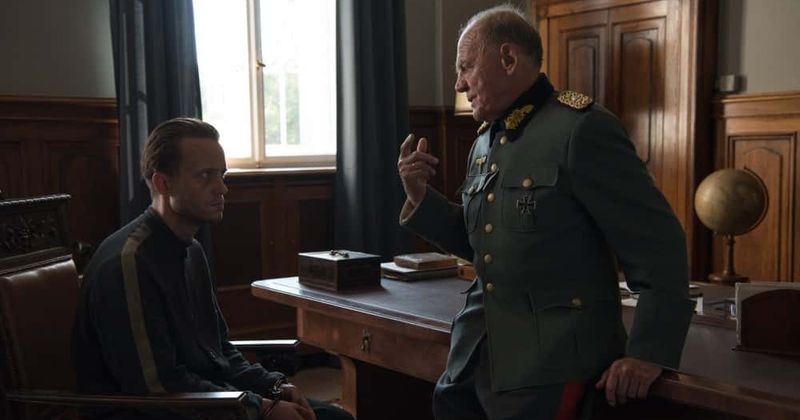Terrence Malick’s ‘A Hidden Life’: Franz Jägerstätter’s true story, devout Christian killed for defying Hitler

76 years ago, Franz Jägerstätter, an Austrian peasant and devout Catholic, was executed for refusing to serve in the German army on August 9, 1943. On December 13, 'A Hidden Life' brings his story to our screens.
The film by auteur Terrence Malick is a timely story in an increasingly militaristic America. It depicts how one man, despite enormous pressure to submit, remained a conscientious objector to an unjust war, largely because it conflicted with his morals as a devout Christian.
Jägerstätter's story did not get much attention during his lifetime, and indeed for decades after his execution. He was beatified only on October 26, 2007, by Pope Benedict XVI and the details of his life were uncovered.
Known for the spiritual overtones and philosophical musings in his films, Malick's attraction to Jägerstätter's story is understandable. But who was Franz Jägerstätter and why is his story so inspiring?
A farmer from the village of Sankt Radegund in Upper Austria, Jägerstätter was not saintly when he was young and had a reputation of being a wild fellow. He even fathered a daughter, Hildegard Auer, out of wedlock in 1933.
But he changed all his wild ways after he married Franziska Schwaninger, a devoutly Catholic woman, in 1936. For their honeymoon, the Jägerstätters went on a pilgrimage to Rome.
After this, Franz Jägerstätter began to study the Bible and the lives of saints, influenced by his wife. The couple had three daughters and lived a peaceful, contented life in their Alpine village on the farm Jägerstätter inherited from his step-father, Heinrich Jägerstätter.
German troops moved into Austria in March 1938. Under the Third Reich, Jägerstätter was offered the position of Sankt Radegund's mayor, which he refused. He was also the only person in his village to vote against the Anschluss (the annexation of Austria) in the April 10 plebiscite.
However, his dissenting vote was ignored by local authorities, who announced that the village had unanimously approved the annexation. He was drafted for the first time on June 17, 1940, when he was 33 and underwent a brief period of military training at the Enns garrison.
He was exempted from active duty and was allowed to return home because he was a farmer. On December 8, 1940, he joined the Third Order of Saint Francis and from the summer of 1941, he worked as a sacristan at the local parish church.
He used his work at the church as the reason for not being able to join the German military, successfully deferring from military service four times. But in February 1943, Jägerstätter was asked to report for active duty in the Wehrmacht, the German army, and swear the Hitler Oath, which was: "I swear to God this sacred oath that to the Leader of the German Reich and people, Adolf Hitler, supreme commander of the armed forces, I shall render unconditional obedience and that as a brave soldier I shall at all times be prepared to give my life for this oath."
When he refused, he was imprisoned. He asked if he could serve as a paramedic on the front, but this request of his was turned down. In July, he was sentenced to death and on the afternoon of August 9, 1943, he was decapitated at Brandenburg-Görden Prison. He was 36 years old.
What is unique about his story, is that Jägerstätter held on to his conviction till the very end, despite the threat of execution, taunts of his neighbors, and with no support except that of his wife. Austria had embraced Nazism wholeheartedly with 99.73 percent of Austrians voting in favor of joining the Third Reich.
There were only some cases of voter fraud in the plebiscite, like Jägerstätter's case, but, overall, the nation resoundingly approved of the Anschluss. Therefore, Jägerstätter was treated as a traitor to his nation and his race for his views.
The Catholic Church also provided little support to him at the time. Before he was imprisoned, he went to Linz to discuss his decision with his bishop but was told not to irk the Nazis.
However, Jägerstätter stuck to his convictions, convinced that God has given him free will to choose the right path. 'A Hidden Life' will be theatrically released in the U.S. December 13.